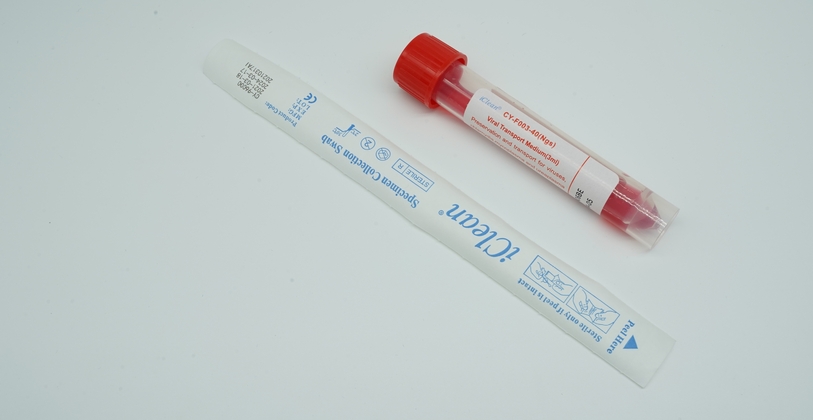a guide to COVID-19 tests and testing kits
Types of test
Virus test
These tests, sometimes called swab or antigen tests, check to see if you are currently infected with the virus.
The swab sample is taken from your nose and throat.
Alternatively, a saliva sample might be used.
This sample is then tested to see if you have the virus.
Lateral flow antigen test or rapid antigen test
Lateral flow antigen tests are rapid turnaround virus tests that can process COVID-19 samples on site, without the need for laboratory equipment. Most produces easy-to-understand results in under half an hour. Because of this, they can be performed in a laboratory or a point of care setting.
Public Health England (PHE) and the University of Oxford have recently carried out extensive clinical evaluation studies on lateral flow tests.
In the UK, the MHRA has granted NHS Test & Trace an exceptional use authorisation to use certain lateral flow devices as self-tests to show infection in people who don’t have symptoms. For more information, please see the section about self-testing.
VTM SWAB KIT

Antibody tests
These tests check for antibodies to see if you have had an infection with the virus in the past. This test requires a blood sample.
This sample is then tested to see if you have had the virus in the past.
Antibody tests are currently only offered to NHS and care staff, as well as some hospital patients and care home residents. They can also be bought privately, but it’s important to be aware of their limitations.
These tests are not used for diagnosis but rather to give us a better understanding of the prevalence of the virus in different places.
Sample collection kits
A sample collection kit is the name given to the different parts of a COVID-19 test that help obtain a sample. This kit must have a valid CE, CE UKNI or UKCA mark to show that the manufacturer has met the minimum safety and performance requirements for the product.
The sample you have to provide, and whether or not you can collect that sample yourself, will depend on what type of test you have.
Please note that not all sample types have been proven to be effective in COVID-19 testing.
Virus test samples
This type of test usually involves collecting a swab sample from the nose, the mouth, and/or throat. A swab is a small piece of soft, absorbent material on a plastic stick.
Some virus tests use saliva samples, collected into a small container, to check for the virus, but this type of sampling is not done routinely in the UK.
You may collect swab and saliva samples at home yourself (this can also be referred to as ‘self-sampling’), or you can get a healthcare professional to do it. The sample is then sent to a laboratory to check for genetic material from the virus.
Swab self-sampling kits are rolled out by the government. For more information, please read the NHS Coronavirus testing page.
If you are using a virus self-test, for example a lateral flow antigen self-test, you would not send the sample to a laboratory because the test can generate the results for you. For more information, please see the section about self-testing.
Antibody test samples
This type of test uses a blood sample, which can be collected in several ways.
Some antibody test kits require a venous, from the vein, blood sample, which can only be collected by a healthcare professional or a qualified person.
Other antibody test kits use a small amount of blood. This type of sample is taken from a capillary via a finger prick blood sample. In certain cases, you may be required to then put this sample on special paper to dry – this is known as a dried blood spot (DBS). When only a small amount of blood is needed, you may collect the blood sample at home yourself, or you can get a healthcare professional to do it.
Both capillary and venous blood samples are sent to a laboratory to check for antibodies.
Concerns about the use of sample collection kits
Anyone using a sample collection kit to test for COVID-19 must read the instruction leaflet carefully. It is very important that you have a clear understanding of the process because if the sample is not collected properly, the result may not be accurate.
If you have any concerns with the sample collection kit or any of its parts, please contact the kit provider for advice. If there are any components missing, the provider should be able to send you a replacement to ensure you are able to use the kit safely.
If something in the kit is difficult to use or breaks when you use it, please report the problem immediately on our Coronavirus Yellow Card website.
If you are unsure what a test result means, or what you should or should not do once you have received your test result, speak to your doctor or a healthcare professional.
Self-testing
A self-test kit is one in which you take a sample, test it yourself, and then read and interpret the results yourself as well. This is different from self-sampling. In that case, you take a sample at home and then you send it to a laboratory for testing.
 A professional supplier of swabs
A professional supplier of swabs
